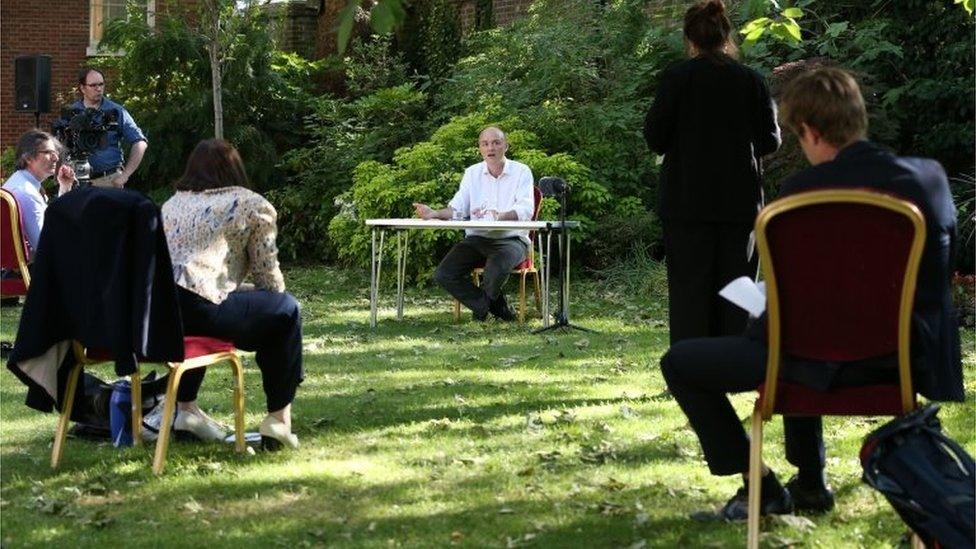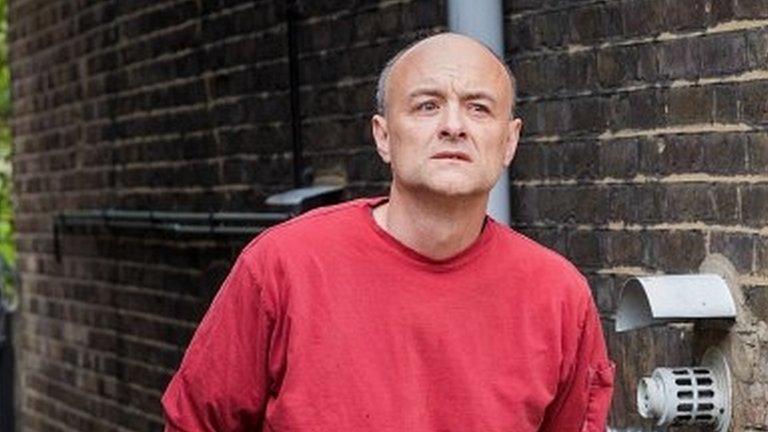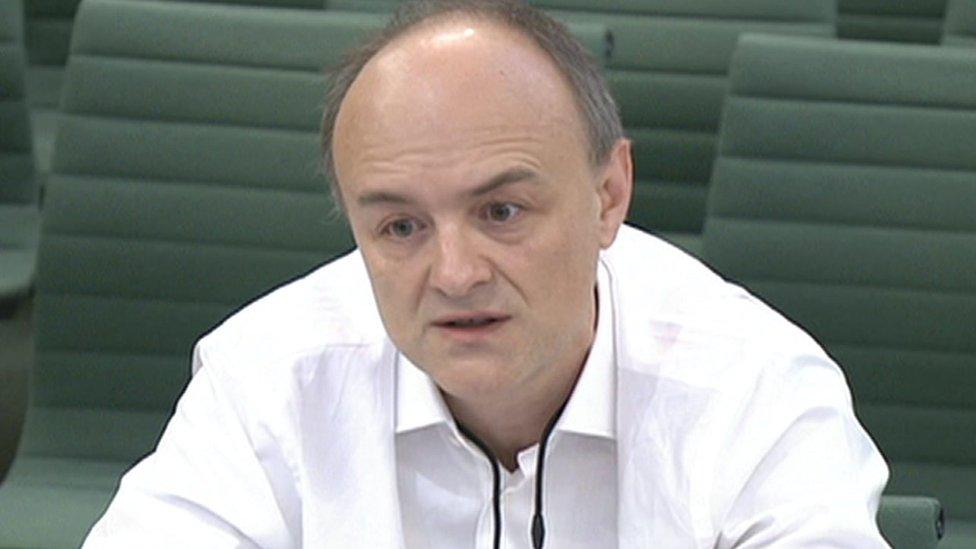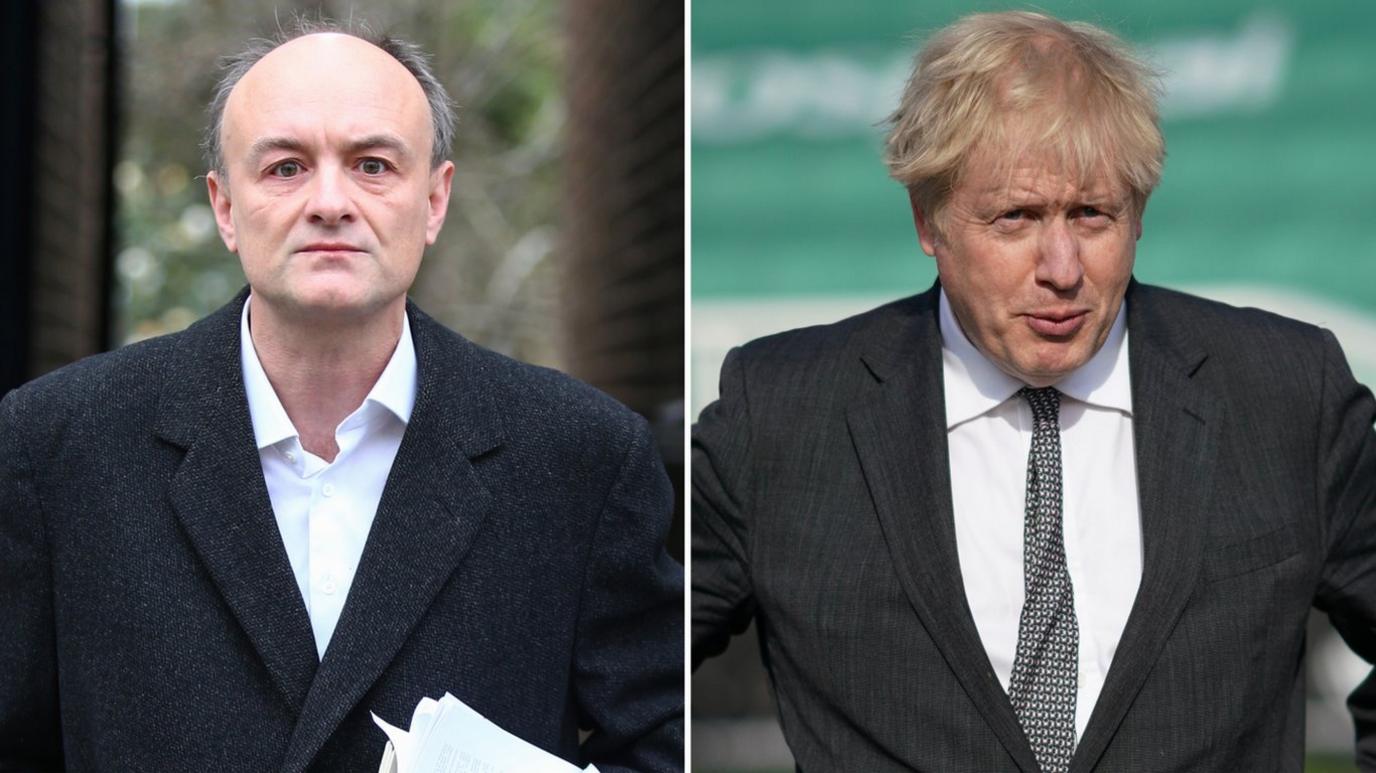Dominic Cummings' accusations can not easily be dismissed
- Published
"Tens of thousands of people died who didn't need to die", Dominic Cummings told MPs
Not the prime minister, nor the health secretary, nor the government's top scientists, nor the Whitehall machine, nor even Mr Cummings himself, escaped the barbs today.
The hours of testimony gave a disturbing sense of an administration simply overwhelmed by the scale of the Covid crisis at the start of last year - scrambling, and failing to keep up on many fronts.
In one sense, given that the situation was unlike any other event in recent history, that was not surprising.
With the success of the vaccination programme, there is little sign that much of the public right now is in a strong mood to punish the prime minister for those early mistakes.
But the extent of the problems is now out there for all to see in gory and tragic Technicolor - the way the official plan woefully underestimated the scale of the problem, the prime minister's private hesitancy about accelerating to lockdown, Mr Cummings' claim about his offer to be injected live on TV by Chris Whitty, a bizarre script in a pandemic version of the Truman Show, the mistakes in testing policy, the decision to send patients back to care homes, the list goes on and on and on.
It confirms No 10's fiercest critics' most trenchant views of the prime minister.
It provides particularly tricky questions for the health secretary who he repeatedly said had misled the public - claims Matt Hancock's team rejected.
Chris Whitty and Patrick Vallance are also likely to be asked, when they next appear in front of a microphone, did they, as the former aide suggested, argue with him for a short sharp lockdown in the autumn?
But the testimony also showed that Mr Cummings himself had only told the partial truth about his own journey out of lockdown.
His bizarre press conference all those months ago in the Rose Garden was not "the truth, and nothing but the truth", as today he cited security concerns about his family, rather than just his wife falling ill.

Mr Cummings defending his journey to County Durham in May 2020
It is the first time that one of those involved in making the decisions during those risky months has admitted in public that so many mistakes were made.
It is the first time that some of Boris Johnson's most controversial alleged comments about Covid have been put on the record, despite the prime minister's denial.
And it is the first time, most importantly perhaps, that someone who wielded significant power has said publicly that tens of thousands of people lost their lives in this country unnecessarily.
Imagine what that must have felt like for a bereaved family, or care home staff to hear.
Ministers right now refer to the public inquiry that won't get under way until next year.
But at some point, that is a claim they will have to answer in full.
'Bitter and broken'
The relationship between Mr Cummings and Mr Johnson is bitter, and broken.
The former adviser's suggestion now, that the prime minister is not fit for office, is both extraordinary but not, in fact, surprising given how toxic it became.
And remember, Mr Cummings' own reputation is not stain free.
He had a reputation for picking a fight in an empty room, as hated by some in Westminster as he was loyally followed by a tight tribe.
And today, he displayed precisely why some of the prime minister's old allies were appalled that he hired him in the first place.
Their fear back then? Mr Cummings' desire to wield influence would trump loyalty every time.
Lastly, looking back, how does the former adviser himself justify helping put Mr Johnson into No 10 when he quite clearly believed he was flawed?
In the short term, the government is unlikely to do anything other than brush off the claims.
But whatever the true balance of Dominic Cummings' motivations, the multiple very public accusations of failure can't be dismissed out of hand.
Related topics
- Published18 May 2021

- Published17 March 2021

- Published23 April 2021

